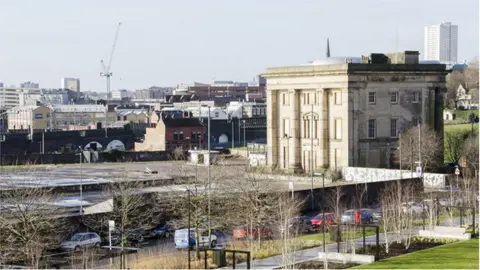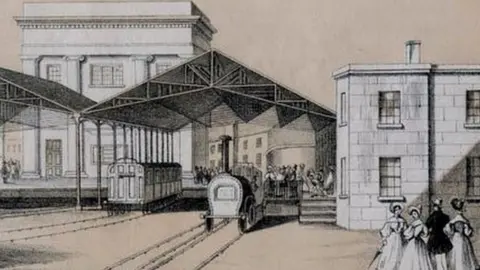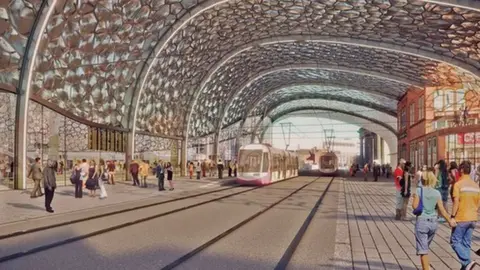Birmingham HS2 Curzon Street station plans approved
 BBC
BBCPlans to redevelop a former Victorian railway station in Birmingham have been approved by the city council.
The scheme will see Grade I listed Curzon Street station turned into a visitor centre and office space for HS2 and other organisations.
HS2 hopes to use the station as the hub for its high-speed line linking London and Birmingham - although these plans are still being developed.
The conversion is expected to start in November, with completion in 2018.
'A gem'
Conservative councillor Peter Douglas-Osborn said the building had been in a "very sorry state".
"This building has at last come back into use and will be integrated into the HS2 system - and it will be the most beautiful addition to it," he said.
"It's a gem - a treasure for Birmingham but it's also a national treasure."

 Library of Birmingham
Library of Birmingham- Curzon Street opened in 1838, with links to London. Its Palladian-style architecture was designed to echo that of Euston Arch, where the trains terminated
- Birmingham City Council describes Curzon Street as the world's oldest railway terminus
- However, it was soon overshadowed by Birmingham New Street Station, in the heart of the city, and closed as a station in 1966

Historic England and Birmingham City University will also use the building.
HS2 also plans to redevelop a 350 acre (141 hectare) site around the station, which will include shops, offices, a hotel and 2,000 homes, as well as a new seven-platform station.
It said designs for its four stations in phase one of the plans have been put out to tender.

Curzon Street development
•366,000 sq m of office space
•98,000 sq m of retail
•57,000 sq m of hotel accommodation
•79,000 sq m of community and leisure related uses
•167,000 sq m of residential accommodation (including student accommodation)
Source: Birmingham City Council

Curzon would serve as a hub linking phase one of the high-speed link from London to Birmingham with phase two towards Leeds and Manchester.
 Birmingham City Council
Birmingham City CouncilHS2 said services between Birmingham and London on the new route would begin in 2026.
Mike Lyons, HS2's programme director said: "It's fitting that we are playing a leading role in restoring the oldest railway terminus in the world whilst simultaneously revolutionising rail travel."
